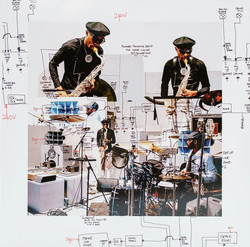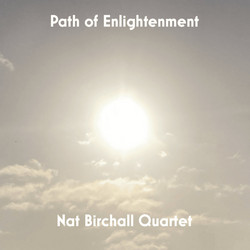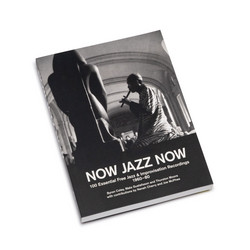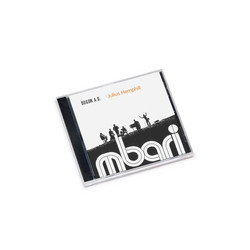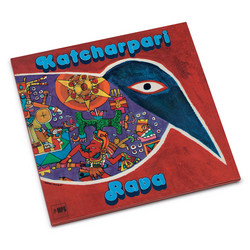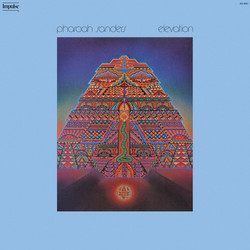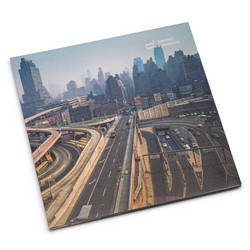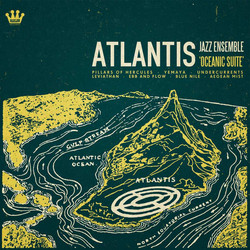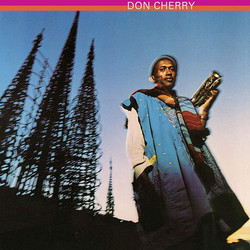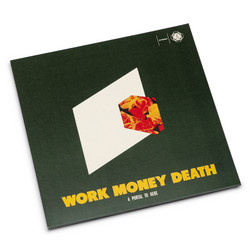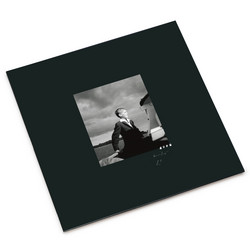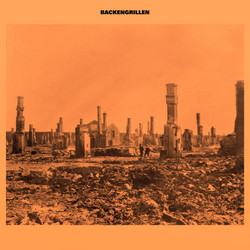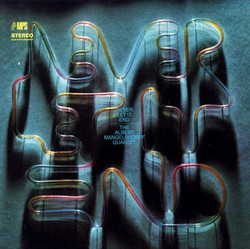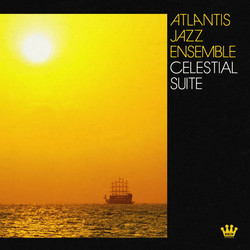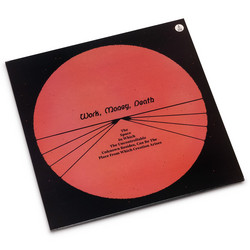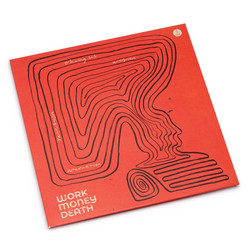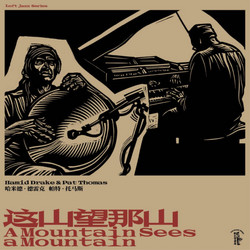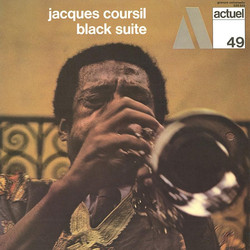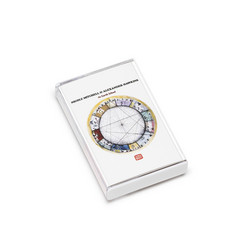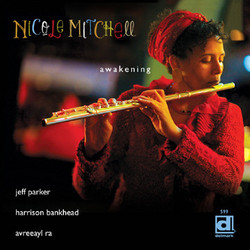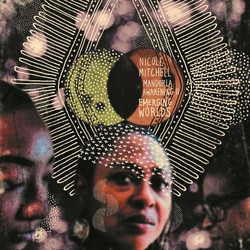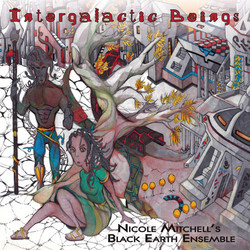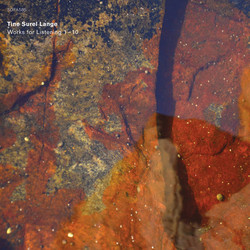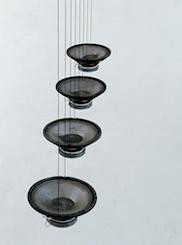Nicole Mitchell
On Mandorla Awakening II: Emerging Worlds (2Lp)
Blurring the edges between philosophy and mysticism, modern art and radical political critique, the Afrofuturist impulse has been a cultural force since the mid-20th century. That’s when jazz visionary Sun Ra Arkestra first touched down on Planet Earth and told humanity that space (outer and inner) is indeed the place. It’s an impulse that in the new millennium has only grown more diverse thanks to a proliferating number of African-American musicians who use Afrofuturism as a platform to launch their own, unique visions. Among these explorers are cosmic jazz saxophonist Kamasi Washington, post-everything beat maker Flying Lotus, R&B cyborg Janelle Monáe and dystopian noise-rappers Death Grips.
The innovative, boundary-smashing work of Nicole Mitchell, whom Chicago Reader music critic Peter Margasak has hailed as the “greatest living flutist in jazz”, has contributed new life to Afrofuturism in the 21st Century. A voracious reader of science fiction since her youth (Afrofuturist author Octavia E. Butler in particular has exerted a heavy influence on her music), the musician, composer and educator has released a string of albums that fold themes centered around technology, spirituality, race and gender into profoundly exploratory jazz that oftentimes reaches far beyond the genre in which it is rooted. Her vast sound can and often does encompass contemporary classical, globally oriented fusion, gospel, spoken word, funk-inspired groove research and even brittle shards of avant-rock. On Mandorla Awakening II: Emerging Worlds, her second and latest full-length for the Chicago-based FPE Records, she uses science fiction to pose the question, “What would a world look like that is truly egalitarian, with advanced technology that is in tune with nature?” Recorded in May of 2015 at Chicago’s Museum of Contemporary Art, it features a new version of her Black Earth Ensemble. In addition to longtime collaborators Renée Baker (violin), Tomeka Reid (cello, banjo), Alex Wing (electric guitar, oud) and Jovia Armstrong (percussion), Mitchell brings in Tatsu Aoki (bass, shamisen, taiko) and Kojiro Umezaki (shakuhachi). Also in the mix is Chicago artist, scholar and poet avery r young, who brings the composer’s lyrics to life with visceral humanity.
Mandorla Awakening II explores what Mitchell describes as the “collision of dualities.” The work chronicles the journey of a couple as they find themselves navigating between two civilizations: the World Union, a crumbling society rampant with injustice and inequality, and Mandorla, a utopia where spirituality, technology and nature coexist harmoniously. The former is masculine, hierarchical and violent while the latter woman-centered, egalitarian and peaceful.
“I’m African-American, and I have a lot of anxiety living in this world today,” Mitchell explains. “Mandorla isn’t an altogether ‘hopeful’ piece, though optimism peaks through at times. I tend to be pretty optimistic, because I believe humanity has the power to co-create its future. Yet it does seem lately that my feelings about living in the U.S. is tainted by the failure and closing of so many schools populated by poor people and people of color, the intense lack of employment in our major cities, and the intensifying of violence on Black men.”
But despite these realities, Mitchell isn’t a dystopian by a longshot. She remains steadfast in her Afrofuturist utopianism, and Mandorla Awakening II can be seen as her attempt to will it into existence for the sake of all of us. As Mitchell points out, “Someone once wrote me something that helps me to keep going. He said, ‘Keep playing music, because while you are playing, your vision of a positive alternative future lives, even if it’s only until the song is over.’”
